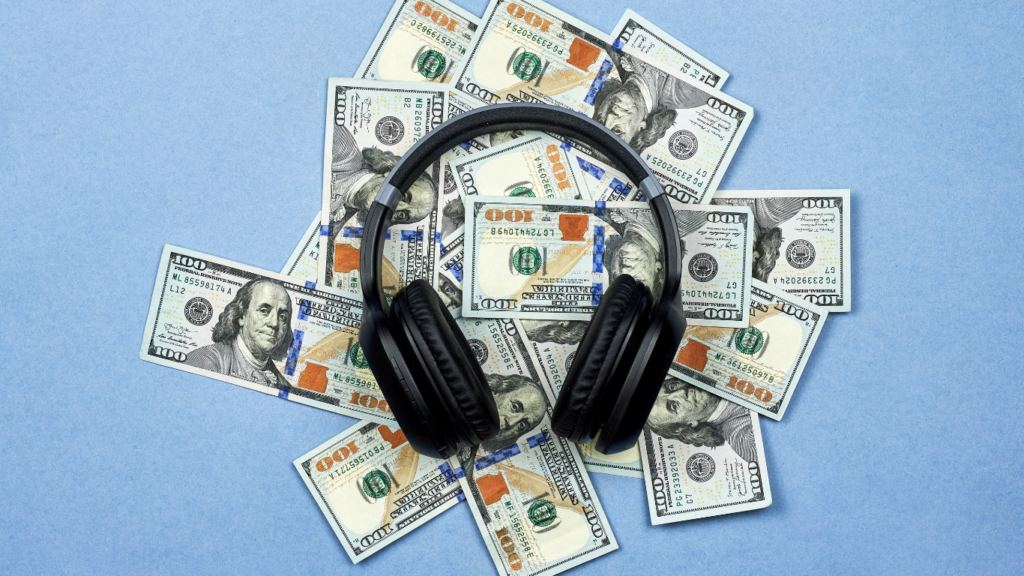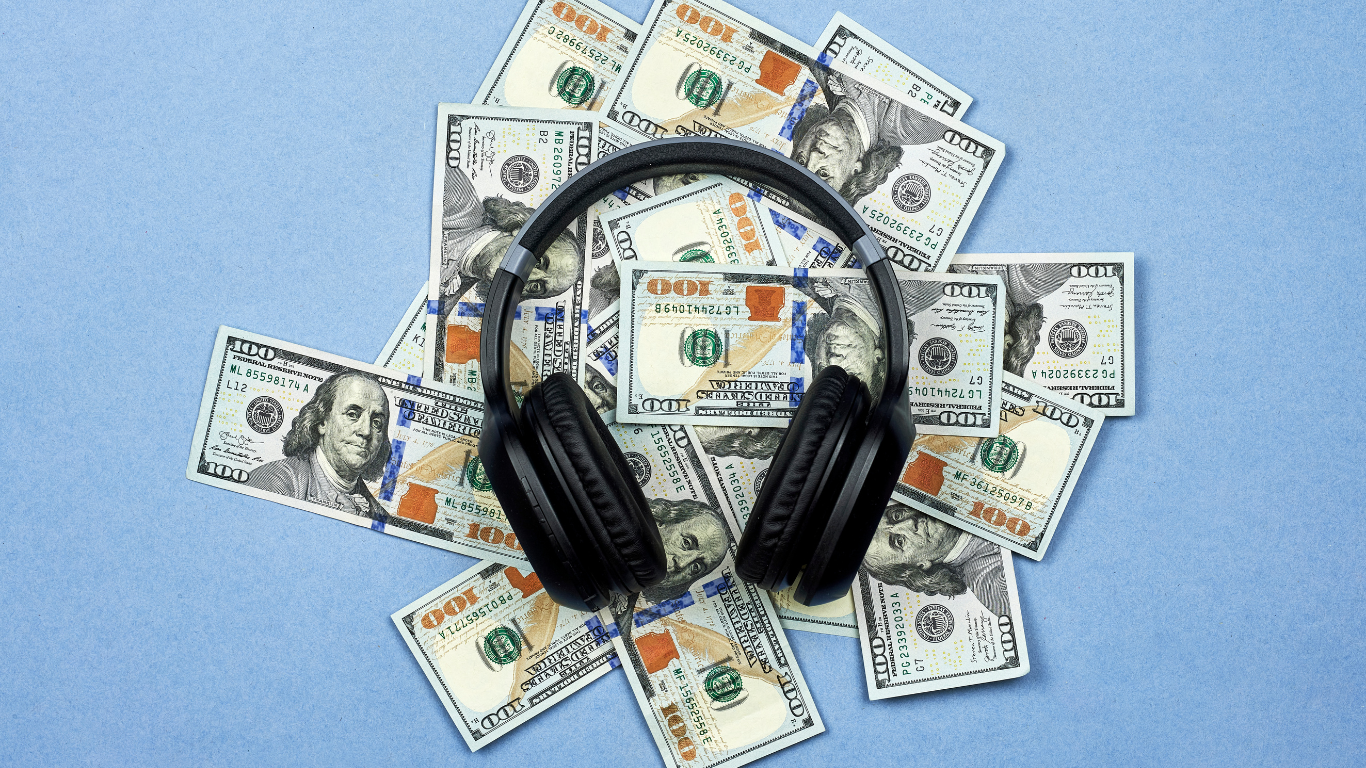

If you want to be successful in your music career, you need to know how to create an effective marketing plan. A marketing plan is a tool that can help you organize all of your promotional activities, set goals, and measure your progress as time goes on. It also helps keep you focused so that you don’t get overwhelmed by everything that needs doing.
Before you can create a marketing plan, you need to know who your audience is and what they like. This will help you determine how best to reach them and keep them engaged with your music. It’s also important that you understand their age group, gender, location, and more so that when it comes time for the actual execution of this plan (step 4), everything runs smoothly.
Most importantly though: don’t forget about their emotional state! The music industry is always changing so having empathy for where people are emotional helps us stay relevant as creators in today’s world of constant change.
The second step to creating an effective music marketing plan is to plan for the long term.
This may seem obvious, but it’s important to remember that you shouldn’t be thinking solely about what you need to do this month or even this year. You should also consider your goals for next year, and maybe even further down the line–as far as five years from now!
For example: If you have a new album coming out in 2020 and want it to be successful enough that people still talk about it in 2025 (and beyond), then planning how best to market that album now will be crucial when those dates roll around.
In order to know whether or not your marketing efforts are working, it’s important to keep track of where you’re at. You should know how much money has been spent on each campaign and what kind of results have come from those campaigns. This will help determine if a given strategy is working or not so that future strategies can be tweaked accordingly based on what has already been tried.
Keep track of the following:
The next step is to set a goal for your music marketing plan. A goal is something you want to achieve, so it’s important that you have one in mind before beginning the process of creating your plan. For example:
Step 5: Create a list of marketing tactics to use.
You should have everything you need the order to create your own music marketing plan by this point, but if not, here’s what you should do next:
A music marketing plan is an essential part of creating a successful career in music, particularly if you are just starting out and don’t have much money to spend on ads and promotions.
It’s important to note that there is no one right way to create a plan; every artist has their own unique situation and will need to approach their marketing differently. That said, here are five steps that can help guide your strategy:
A music marketing plan is an essential part of creating a successful career in music, particularly if you are just starting out and don’t have much money to spend on ads and promotions. It may seem like a lot of work, but the payoff will be worth it in the long run!

Planning content in advance is important for musicians because it gives them the time to write and record their next album. In this article, you will get 5 tips on how to plan content in advance.

The music industry is an ever-changing landscape. With new artists coming onto the scene and established artists releasing new albums every year, it’s important for musicians to stay on top of their marketing and social media efforts. But this can be challenging when you’re busy with rehearsals, recording sessions, and live performances. In order to keep up with your fans’ expectations and stand out from the pack you’ll need to find time in your busy schedule to plan out your content ahead of time. Here are some tips on how to do just that:
Brainstorming is a great way to develop ideas before you actually create the content. This can mean everything from sketching out a plan for your new album cover on paper or creating a list of topics that you want to cover in a podcast episode. Set aside some time each week (or every day) to brainstorm new ideas and concepts that could be included in your upcoming pieces.
The first thing you need to do is compile your ideas in a document or spreadsheet. This will help you stay organized and keep track of what content you want to create and when.
In another section, we mentioned the importance of using a calendar for planning out your time, but when it comes to creating blog posts and social media content, it’s even more helpful! You can use the calendar feature on your smartphone or computer as well as third-party apps like Google Calendar or Todoist (my personal favorite).
Once you have created this document with all of your ideas listed out by topic and date, go through each one individually and decide how much time each one will take from start to finish—including writing the post itself, editing it once finished (which should be done first), proofreading it one last time before publishing on social media platforms like Facebook/Instagram/Twitter, etc., posting on those sites with hashtags if necessary so people can find them easily in search engines such as Google or Bing, etc., monitoring how many likes/comments/shares there are on each post after it goes live so that any changes needed can be made swiftly without waiting too long between updates.
Setting up social media and blog calendars is an essential step for musicians to plan content in advance and increase the consistency of their output. This can be done through a spreadsheet, or with apps like Buffer, Hootsuite, or Sprout Social. A calendar helps you to track your progress, as well as easily see when there are gaps in the schedule that need filling with new posts or tweets.
Scheduling posts in advance is an easy way to stay on top of your social media game. It also helps you avoid being late, which could make people think less of your brand—or even worse, leave a negative impression.
If you don’t have the time or patience to craft engaging content on a daily basis (which is understandable), scheduling can help fill in gaps and reduce stress. In fact, scheduling tools like Hootsuite are designed specifically with musicians in mind you can schedule tweets or Facebook posts from anywhere at any time!
Planning content in advance is key if you want to stay on top of your marketing and social media efforts. If you’re planning content in advance, you will know what to post and when and thus be able to focus on other aspects of your business.
If you’re a musician looking to plan your content in advance, these tips will help. They give you a good idea of how to brainstorm ideas, compile them into documents and spreadsheets, create a marketing calendar, schedule social media posts in advance, and more! As always when it comes to making music, remember that the only way to succeed is by practicing hard work (and maybe some luck).


If you’re a musician and you want search engine traffic, it can be tough to figure out where to start. There are so many moving parts that it’s easy for even the most competent people to get overwhelmed. That’s why I’ve put together this exhaustive checklist of every step you need to take to make sure that your site is optimized for search engines like Google and Bing. This way, whether you’re an experienced SEO specialist or just getting started with e-commerce, there will be no question as to how well your site ranks on search engines:
The title tag is the most important on-page SEO factor. It should be visible on your website’s homepage, and Google will use it to determine what your site is about
The title tag should be between 60 -70 characters long, but I recommend keeping it to 70 characters if possible, as this can help with rankings in search engines. In this space, you want to include one or two of your most important keyword phrases (e.g., “music lessons for adults” or “piano lessons for kids”). You also want to make sure that these keywords are descriptive and informative; remember that people visiting your site have questions that need to be answered!
Metadata is important because it helps search engines understand what your content is about, and they use that information to determine where it should be ranked. If you don’t provide metadata, then search engines will use whatever text is on the page itself instead. This means that if you’re not careful about what words are visible on your site, then those words could become important in determining where you rank for certain searches.
Meta descriptions are one of the most powerful tools in an SEO’s arsenal. They’re short summaries that appear below some listings in search results; Google even uses them to help inform its Knowledge Graph (where it displays facts about topics people search for). The good news here is that musicians can write their meta descriptions! This can be a great opportunity to include keywords relevant to your music or band just make sure not to go overboard with keyword stuffing; Google doesn’t like when websites overuse specific terms just because they think it’ll help them rank higher.
There are two main types of metadata: HTML and XML/RDFa (Extensible Resource Description Framework). Both allow us to provide information about our resources so they’re easier for anyone trying to find them through different channels; however, there are subtle differences between these standards which we’ll discuss later on in this article…
Image ALT text is the text that appears when you hover over an image. It’s used for accessibility and SEO, as it helps search engines understand what your images are about.
The first thing to remember is that an image’s ALT text should be descriptive and include keywords. For example, if you have a photo of yourself playing the guitar on stage at a show, your image ALT text might say something like “Tom Jones performing at The Troubadour in Los Angeles, California” or “Tom Jones performing on stage at The Troubadour in Los Angeles, California while wearing his signature glasses.”
Additionally, the maximum length of any given piece of content including alt tags should be 160 characters (including spaces).
Copy is the text on the page that is visible to the user. You should always write your copy to be read by humans, not search engines.
This means that you should avoid repetition and long blocks of text where possible – if a reader can’t get through it all in one go, they won’t bother reading it at all. Remember: people don’t spend hours at a time searching for content; they usually have something specific they need help with, so keep it short and sweet!
It’s also important that your copy is unique and original don’t just copy from elsewhere on the internet! Search engines penalize sites for duplicate content, so make sure yours stands out from other sites by keeping things fresh (and avoiding plagiarism at all costs). Keep in mind that Google will only index about half of what’s published online as part of its algorithm; if you want both search engines AND visitors themselves coming back again and again then go ahead and write something brilliant every single time – even if no one else does!
When it comes to your online presence, Google My Business is an incredibly useful tool. You can use photos, videos, and more on your business page. You can also claim your listing on Google Maps (this will help people find you).
If you haven’t already, create a Google My Business page for yourself or your band. Then add links to that page from all of the different places on the web where people might look for you online: Facebook, Twitter, Instagram, etc…
Social media is a great way to build your brand, reach fans and potential fans, and share your music. Facebook, Twitter, Instagram, and other social media platforms have all kinds of features that can help you strengthen your relationship with listeners and fans.
Reviews and ratings are important for SEO, and you should be getting as many as possible.
But how do you get reviews?
You can ask for them on your website, or use a service like Yelp to collect reviews there. You can also offer free products in exchange for an honest review (be sure the product is useful for musicians!). If someone writes a good review about your music online, don’t forget to thank them!
How do I get more reviews? How do I get more ratings? How do I get more stars? How do I get more than five stars?
Link building is one of the most important parts of your SEO strategy, and it should be a major part of your overall marketing plan. Here’s what you need to know about link building for musicians:
It’s important to understand that SEO is a complicated subject with many moving parts. You should use this checklist to stay organized and make sure you’re working on the right things in the right order.
It’s also worth noting that most of the tasks on this checklist should not be performed by musicians themselves, but rather by an experienced web developer or agency with whom they can partner.
SEO is a complicated subject with many moving parts. Use this checklist to stay organized.


The music business is a dream for many. After all, it’s an industry full of talented people who love what they do. But getting into the music business can be tricky if you don’t know what to expect or where to start. First, you need to understand what the music industry is: how it works and how artists get noticed by record labels and managers. Then we’ll talk about how you can break into this exciting world with your own career as an artist or producer!
The music industry is a business. It’s made up of many different parts and it’s a complex ecosystem, but at its core, it’s a network of people who have created businesses that serve the industry.
The music industry is also a collection of many different businesses: record labels, publishers, managers, producers, artists on tour and in the studio, songwriters, agents, and promoters are all part of this ecosystem.
Before you begin, you should have a good handle on the following:
You’ll also want an understanding of how to build a fan base, as well as how to use digital platforms and social media to promote yourself and your brand effectively.
The music business is full of talented people. To break in, you need to be persistent and willing to take risks and work hard. You need to be willing to learn new things and to take criticism.
To get started, you could try self-releasing an album or EP on Bandcamp, SoundCloud, or iTunes; these platforms make it easy for newcomers to get their music out there without the help of a record label or other gatekeeper.
Creating high-quality music is the first step to getting noticed by the right people. This sounds obvious, but it’s something that you need to keep in mind throughout the entire process of starting your career as a musician.
The next step is making sure that your music is heard by the right people.
You can do this through various channels:
Negotiating a win-win is often a process that takes place over multiple meetings. It’s important to be professional and prepared for the negotiation process, including knowing the value of your product and what the other party wants. Keep in mind what the industry standard is and what you know about your competition’s deal terms. Make sure you know who your audience is and where they are located geographically. To get into the music business, you need to be able to walk away from a deal if it doesn’t work for you but always stays open to new opportunities!
The next step is to find a manager. A good manager can help you develop your career and negotiate with record labels, music publishers, film studios, and other businesses that may want to use your music in their projects. The manager knows how to get your music heard by the right people and should also be able to answer any questions you have about what they do or how they can help you succeed as an artist.
The next thing you will probably need is a lawyer who specializes in representing musicians. It’s important that you choose someone who has experience working with artists because this person will be your gatekeeper when it comes down to negotiating contracts for things like publishing deals (which gives them permission to use your songs), endorsements (where companies pay artists for using their likenesses on products) or touring agreements (this gives them permission access venues so they can perform live).
A publicist helps artists create buzz by pitching stories about them to magazines or radio stations without being paid directly by those outlets because these professionals have relationships built over time where they know exactly what types of stories will appeal most effectively to their audience demographic. A stylist works on fashion so if this isn’t something currently part of your interests then perhaps consider hiring one anyway because having clothing fit properly really makes a difference when trying out something new! Finally, the booking agent handles getting shows booked at venues throughout town which means introducing yourself face-to-face and then selling tickets through websites like Ticketmaster or StubHub while also handling transportation arrangements such as travel expenses plus hotel stays if applicable.”
The music industry is a big umbrella term for many different jobs, from artists to songwriters to producers and engineers. It’s a business, but it’s also a lifestyle: some people are only in it for the money, and others love their job so much that they would do it for free if they could just afford to live off their passion. The music industry is made up of artists, songwriters, producers, engineers managers publishers record labels, etc
I hope this article has given you a better understanding of what it means to be part of the music industry. You’ll need to know how your skills and talents can help you succeed in this competitive field, as well as how best to present yourself during an interview process or when negotiating with other people in the business. Your career is yours alone one else will make it happen except for you!

In the music industry, A&R stands for Artists and Repertoire. An A&R executive is your ultimate guide in approaching someone from the record label. This guide will help you prepare for an A&R meeting and get your music to market.

It’s hard to get noticed when everyone is clamoring to get noticed. There are a lot of artists in the industry and they’re all competing for the attention of A&Rs and music executives. In this article, we’ll go over how to prepare for an A&R meeting so that you stand out amongst the crowd.
A&R stands for “artists and repertoire.” In this case, “repertoire” means your music, the songs you write. A&R is the department at a record label that finds new talent, signs them to the label, and works with them to polish their artistry and release music.
When you meet with an A&R person, they want to hear your best songs the ones that demonstrate what makes you special as an artist. If you’re just starting in your career as a songwriter or musician (or if someone else is pitching on behalf of your band), it’s important to prepare yourself for this meeting ahead of time so that no matter what happens during those first few minutes together (and there will be some inevitable awkward silence), it’ll go smoothly enough that everyone leaves thinking good things about each other and looking forward to working together again soon!
A&R executives are busy people. They have a lot on their plate and aren’t going to waste their time with anyone who doesn’t follow the guidelines for booking a meeting. But if you do manage to get that meeting, then you must know what to expect from an A&R exec and how best to prepare for it.
A good way to think about this is like going on a date. You don’t just show up empty-handed and hope for the best you prep! So before booking any meetings, take some time and make sure your music has been mastered by someone who knows what they’re doing. Then make sure all of your social media accounts are up-to-date and active; including links where they can find more of your work online. And finally, have some great photos taken by professionals at least three months in advance so they will be ready when they need them.
To make the most of your A&R meeting, you should be prepared to discuss how a record deal would help you. You should know precisely what you want from the recording process and how it will benefit your career. For example, if you’re an up-and-coming new artist, perhaps having more creative control over your work will allow for a greater chance at success than releasing an album through an independent label or self-publishing on SoundCloud. Or perhaps staying away from major labels is important because they may hinder your ability to pursue other interests (like touring). If either of these scenarios sounds familiar to you, it might be time for some serious soul-searching about where and how being signed would fit into your plans.
If becoming famous isn’t necessarily one of them (and let’s face it: not everyone wants that), then consider where else this could lead in terms of exposure and publicity many artists who don’t aim for chart-topping hits still find success through touring or licensing their music; these things don’t require any kind of contract with a major record label!
Once again: before meeting with anyone in person about anything related to the music business or entertainment industry careers in general–even if they say they are just interested in helping out to make sure everything feels right!
It’s also likely that you’ll be asked how many followers you have across various social media platforms, and how well your music has been received in the press. The more coverage you can demonstrate, the better. Social media metrics (number of followers across various platforms), press mentions, and streams on various services such as SoundCloud or Spotify are likely to come up.
The best thing you can do to prepare for an A&R meeting is work on your artistry your live performance and recorded music and make yourself a unique presence on social media. You should have a clear idea of where you want to go next in your career and what that would look like. Social media metrics (number of followers across various platforms), press mentions, and number of streams on various services are important factors that A&Rs consider when deciding whether or not to sign an artist.
You can only control how much you are prepared for the meeting; everything else, like the person’s feelings about your music or whether it has potential in the market, is entirely out of your control. This is why it’s so important to be ready for an A&R meeting—your preparation will show that you’re serious about getting signed and will give you something else to discuss with the label representative besides just what they think of your songs.

Music streaming giant Spotify is seemingly everywhere. But they are not the only ones expanding their activities in Africa, global music labels are increasingly looking to the continent for new artists and market leaders too. Some of these include Mavins Global, Empire, Universal Music Group, Sony Music Entertainment, Concord Records, and Roc Nation with the latter helping Nigerian artists wizkid, Burna boy, Davido and other fast-rising artists break into the US market and reach
In the past few years, Africa has emerged as a significant market for music labels.
Fueled by a growing young-people population, great musical talent, great culture, and more streaming opportunities, Africa’s music industry is booming. And the world’s major music labels are taking notice.
1. The continent’s population is young and growing fast: According to the UN, Africa has one of the youngest populations in the world. This means that there are plenty of potential consumers who can be reached through marketing campaigns targeting young people. In addition, many African countries have high birth rates which will result in more consumers entering the market over time. For instance, Nigeria was ranked as having one of the fastest-growing populations globally due to its high fertility rate (4) and increasing life expectancy at birth (5). Furthermore, recent data shows that Nigeria will have more than 200 million people by 2050 (6).
The global music industry has been undergoing some major changes recently with streaming becoming increasingly popular among consumers around the world — especially in Africa a continent Fueled by a rowing young-people population, great musical talent, great culture, and more streaming opportunities, Africa’s music industry is booming.
In 2017, Forbes reported that Nigeria was the world’s fastest-growing market for recorded music — up 20% from 2016 — and it’s not alone.
The African continent is a hotbed of musical activity. On top of the fact that it’s home to some of the world’s most well-known musicians (such as Fela Kuti, Angelique Kidjo, Youssou N’Dour) and of course the emerging wizkid, davido, Burna boy and the likes. new artists are emerging every day.
The biggest reason why major labels are so interested in Africa right now? The growth potential is huge. A study by MIDiA Research predicts that digital music revenues will reach US$2.36bn in 2022 in sub-Saharan Africa alone — representing an increase of 40% from 2018.
I hope this helps you to put your best foot forward when sending your music industry professionals a demo of your work. There is a lot of information to be gathered, but it is there for a reason if you follow the simple steps outlined in this article, you are more likely to make the strongest impression on any A&R rep that happens across your demos. Who knows? Maybe it will lead to the break you’ve been working for!
Your song is your work of art. You’ll want to share it with the right people. Normally done over email and social sites, it’s not always easy to network; you don’t know who’s listening and you certainly need A&R reps contact information. I will help you set the scene for success.

The problem with the new music industry is that it’s so difficult to find good music. There are tons of artists out there who have amazing talent, but unless you know about them, you’re not going to hear about them. It’s a shame because there are so many talented people out there who have no chance of making it big due to a lack of exposure.
Another problem with the new music industry is that there are no real labels anymore. Labels used to be able to help artists get exposure and make connections with other artists and producers, but now they’re all gone because they can’t compete with the internet. Now anyone can put up their site and sell their albums without having any help from anyone else. This means that if an artist wants to get their music heard by anyone else, then they have to do it themselves through social media or websites like SoundCloud or audiomack. This kind of defeats the purpose of having a label in the first place because now labels don’t have any control over what happens with the artist’s career anymore. They used to have more control over things like where an artist performed live or how much money they made from their album sales
The music industry has always been a bit of a mess. However, the digital age has made things even more complicated. Digital distribution has brought many positive changes to the industry, but also some negative ones.
The biggest change in the music industry is how music is distributed. In the past, physical media like CDs and vinyl was the only way to listen to or buy music. Nowadays, it’s possible to buy or stream songs at home on your computer or mobile device. This has caused a shift in how artists make money from their work.
The internet makes it easy for anyone to pirate music for free (even if they don’t realize it). Because people can get their hands on music so easily, it’s hard for musicians to make money from their work unless they’re famous enough to sell out concerts and make money from merchandise sales.
Piracy is one of the biggest problems facing the modern music industry because it devalues art by making it easy for people to download songs without paying anything or even being aware that they’re stealing someone else’s work. Piracy also hurts musicians financially because they aren’t getting paid when fans steal their music instead of buying albums or attending concerts where artists make most of their money

The music industry has been changing at a fast pace over the past few years. The internet has given us access to more music than ever before, which is excellent for listeners but problematic for musicians.
Music streaming services like Spotify and Pandora have become hugely popular ways for people to listen to their favorite tunes. However, these services don’t pay much money to artists unless they can prove that they’re popular enough to make the service money. This means that new artists are often left without any income from their work if they don’t have enough followers on social media or other websites.
Another issue facing new artists today is that they have to compete with older artists who already have large followings when it comes time for record labels to promote their albums. This means that some talented new artists never get a chance because there’s simply no room on radio stations and television channels for them.
Another problem with the current music industry is that it’s hard for bands outside of major cities like Lagos, Nigeria to get noticed by record labels and promoters unless they live there because these cities tend to be where most of the industry activity happens.
The music industry is saturated with new artists, and it’s difficult to stand out. It’s a problem that’s been compounded by the internet, which gives everyone access to all of the tools they need to make good music.

Getting a team together to help you succeed in this world is tough, but it’s necessary if you want to have any chance of success. If you’re trying to be an artist who makes their music and performs shows, here are some things you should keep in mind:
You need a producer and engineer who can help you make your songs sound great on all platforms.
You need graphic designers to create album art, t-shirt designs, and other visual elements that represent your brand. You also need someone who can take photos of you performing or doing whatever else it is that makes up your image as an artist.
You’ll also need someone who can build websites and social media pages for you so people will know how to find out more information about your music and upcoming shows.
The music industry is a very unique business. It’s one of the only industries where people will pay to go see an artist perform live. But it’s also a volatile industry, with huge swings in sales and profits.
The music industry has been changing dramatically over the past decade or so, from downloads and piracy to streaming services like Spotify and Pandora. New artists face more challenges than ever before — and some big problems are facing the industry as a whole.
One of the biggest problems for new artists is touring expenses. The cost of touring is high, especially for contemporary artists who don’t have enough fans to sell out venues on their own. Touring expenses also include travel expenses and paying your bandmates (or other people) to join you on tour.
If you want to tour at all, you need to have enough money to support yourself while on tour — and that’s hard if you don’t have enough fans yet!

A&R representatives, or “A&Rs,” are the people who work with artists to help them record their albums, find producers and songwriters, and more. They’re also responsible for signing artists to record deals and creating a marketing plan around their music.
The A&R position can be both rewarding and extremely challenging. To succeed in this role, you’ll need to have an in-depth knowledge of the music industry, as well as an understanding of how to market your artists’ work effectively. A&R reps typically work for labels or management companies that represent artists. Their primary responsibilities include:
Managing artist development: A&R reps are responsible for developing talent from the ground up. This includes everything from finding new artists to coaching them on stage presence and performance skills. A&R reps also work with managers and agents on behalf of their clients to secure gigs, tours, and appearances on television shows or at festivals.
Managing artist contracts: A&R reps negotiate contracts on behalf of their artists with record labels, publishers, and other entities involved in creating an album or single release.
This includes negotiating royalties, advances, and other contractual terms so that they’re fair for both parties involved in an agreement

A&R reps are typically paid a percentage of the artist’s royalties and other income. The exact amount varies depending on the record label, but it’s often between 10% and 25% of the artist’s publishing royalties or revenue from sales or licensing.
For example, if an artist earns $5 million in royalties over the course of their career and the A&R rep gets 15% of that money, they’ll earn $750,000 (15% multiplied by $5 million).
What the A&R Rep Does
The A&R rep is the person who signs and develops new artists, as well as helps them to create their music. The A&R rep has many roles, including finding new talent and signing artists to record contracts with their record label. They also help develop careers for their artists by helping them find producers, songwriters, and other people who can help them make their music sound great.
How an A&R Rep Finds Talent
An A&R rep finds new talent by listening to demos sent in by artists’ managers, By social media platforms, or by going to live shows where they can meet artists and watch them perform. If they hear someone they like, they approach that artist’s manager and try to get a meeting set up with him or her. Once they meet with an artist, they’ll try out different songs on them to see how well they work together musically. If these meetings go well, the A&R rep will sign that artist to a contract with his or her record label.

After a record company signs an artist, it is the A&R rep’s job to help build the artist’s career. The A&R rep often works closely with the artist and his or her manager to develop the artist’s image and music. The rep will also work with radio stations, television shows, and other media outlets to promote the artist and his or her music. In addition, an A&R rep may book concerts for their artists or arrange for them to appear on television shows like American Idol or The Voice.
The A&R rep may also be responsible for selecting songs for an artist that they want to be included on an album. The rep listens to new songs submitted by songwriters and decides which ones are good enough for inclusion on an album. If a songwriter does not submit a song that is good enough for one artist, he may send it along to someone else at the same record label who needs new material for a different artist in their stable of artists.
The A&R rep is the person who finds new artists, develops them, and helps to get their music heard by record labels. The A&R rep will also help to manage the artist’s career once they’re signed.
The job of an A&R rep is not just about finding new music; it’s also about helping the artist grow as a performer and a musician. One of the most important functions of an A&R rep is to find new talent and allow help that artist develop into a successful performer.
In today’s world of music, there are thousands of artists looking for a big break in the business. Many people think that being signed by a major label is all it takes to make it big, but this isn’t necessarily true. Today’s music industry has changed drastically from years past, largely due to technology and social media taking over everything we do online. The internet has brought us closer together than ever before; this includes musicians who are all trying to get noticed by fans all over the world through social media sites like Facebook or Twitter. This has become one of the best ways for musicians to market themselves today because it allows them to reach out to millions of people in just minutes!
The job of an A&R rep is to scout and sign new artists, as well as develop existing artists. A&Rs are also responsible for overseeing the careers of artists they have signed. This includes things like negotiating contracts, making sure that albums are promoted properly, and helping to plan tours.
A&R reps can work for record labels or be self-employed. In either case, they may be involved with several different artists at once. A&R reps typically work with several different genres of music, although some specialize in one type of music (e.g., afro beats, hip hop, R&B, etc).
Senior A&R Executive: Senior A&R executives oversee all aspects of an artist’s career and work under the supervision of the president of the company or label they are working for. They may also have their staff and assistants who carry out various tasks related to signing new artists, developing existing artists and promoting albums and songs on radio stations, television shows, and other types of media outlets that play music videos, such as HIP TV, M TV BASE, etc.
A&R reps are responsible for scouting out new artists and developing them into stars. As you might imagine, it’s a very competitive field with lots of competition from other A&R reps who have similar goals.
So what does an A&R rep do? What do they get paid? And what are the steps to becoming one?
A&R stands for Artist & Repertoire, which means that the person in this position is responsible for finding new talent and then molding them into stars. They’re also responsible for choosing songs and overseeing album production by signing off on budgets, approving artwork, and more.
A&R reps can make a lot of money, but they don’t always. The average salary for an A&R executive is $77,000 per year. If you’re an A&R rep at a major label, your salary may be higher or lower depending on how successful you are at signing artists and getting them recording contracts. If you’re working as an independent A&R rep, like me, your payment will be much higher.
As an independent A&R rep, I charge 6 figures per artist that I sign to my label. That’s the price you’ll pay if you want me to find you a deal with one of the major labels. If I sign an artist directly to my label without going through a major label first, then I charge less. (because it’s easier for me).
Music publishers are the people who handle the songwriting credits and royalties. They act as a liaison between the artist and the record label, ensuring that the songwriter is compensated for his or her work.
The A&R rep often works with music publishers to make sure that they have all of their ducks in order before they send out tracks to labels. This means checking up on things like copyrights, publishing splits, and royalties owed. If you’re an artist who has written songs for other artists, you need to know how much money you can expect to make from them.
A&R reps can help with this by keeping track of royalty splits that were agreed upon in contracts. They also ensure that everyone involved receives their fair share of royalties when they’re due!
The A&R rep is an important member of a record label, who helps to find and develop new artists. They also have other tasks that help the label, such as creating compilations or writing liner notes for albums.
music companies are responsible for the production of albums and singles, the promotion of albums and singles, the marketing of albums and singles, the time scheduling of album recording sessions and singles recording sessions, the correct signing of new artists to contracts that are fair to both parties, and more. It is a difficult responsibility. A&R representatives are also responsible for some of these things as well, but they’re also required to be great listeners–not necessarily good musicians–to be able to tell if an artist or band will be successful on stage and record with their recently signed contract. They must be professional when meeting with the artist and his or her band members during the signing process so trust will be created between the two parties. They must be able to effectively tell when an artist needs help in getting their band’s career off of the ground again by issuing them either a letter or a phone call or by having dinner or drinks with them so that they can better assist them from thereon out toward success. And if you want your artists to not get lost in the shuffle of all of the other bands out there now competing for fame (which is more difficult than ever these days), they need an A&R rep they can trust wholeheartedly.


Royalties are the lifeblood of music publishing. They’re what you get paid for when someone uses your song in their project—like a movie, TV show, or commercial. But there’s more than one type of royalty involved in music publishing, and each one is based on the use of your music. In this post we’ll go over three types of royalties you should know about:
Mechanical royalties are paid to songwriters and music publishers when their songs are recorded and sold on a CD, vinyl record, or digital download. Mechanical royalties are shared with the artist who performed the song (if applicable), as well as record companies who invest in producing and distributing it.
Songwriter royalties are paid when you write your own music, while publisher royalties go to whoever owns the publishing company that controls your work (often your manager).
Performance royalties are paid to songwriters and publishers when their songs are played on the radio, in restaurants, bars, or other public places.
Performance royalties are collected by ASCAP (American Society of Composers Authors and Publishers) BMI (Broadcast Music Inc.) SESAC (Society Of European Stage Authors & Composers) SoundExchange.
Synchronization (or “blanket”) licenses are a type of music publishing royalty that allows an artist to be paid for their songs being used in the film, television shows, and commercials.
A synchronization license is typically bought by a music supervisor who works for the producer of a movie or TV show. They’ll listen to several songs before deciding which ones fit best with their project’s storyline and theme. When they select one song from an artist’s catalog and decide to use it in their project, they contact that artist’s publisher requesting permission to use their song(s) under license terms agreed upon beforehand by both parties (the publisher and artist).
Understanding the different types of royalties in music publishing is key to getting paid.
Royalty is the money or percent of the amount being earned from a published work, that is allotted to the publisher once a sale is made. The percentages will vary based upon several different factors, but suffice it to say, they are a very good way of making additional income, provided that you have established rights to your music through publishing.
I hope that in reading this article you have gained a better understanding of the many different types of royalties involved with music publishing. This is just a basic explanation but they are quite complex, and many things can occur when you are talking about publishing. I urge any individual who is considering entering the world of music publishing to seek out more information before doing any deals with publishers because it could cost you thousands later on down the road. Have fun writing your songs, and remember these important points!